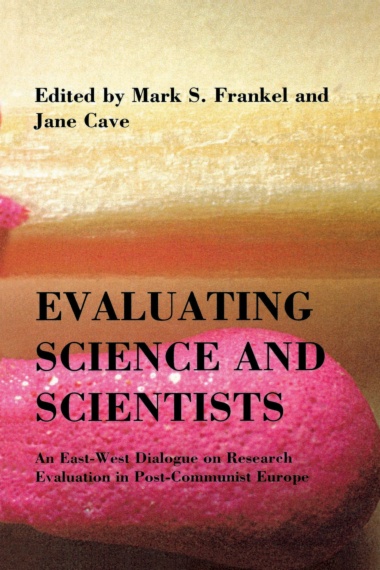The shift to a market economy in post-communist Eastern Europe has had a profound impact on science and scientists across the region, leading to reforms in research management practices and to drastic cuts in funding levels everywhere. Many countries are moving to a system of competitive research grants awarded on the basis of peer review. The introduction of peer review is not simply a technical matter. It signifies a fundamental change in the social structure of science, enhancing profession-al autonomy and giving working scientists a voice in the allocation of resources. This book combines first-hand accounts of the reform process with analyses of the strengths and weaknesses of both peer review and quantitative indicators.
- Cover
- Front matter
- Title page
- Copyright page
- Contents
- List of Contributors
- Acknowledgments
- Introduction
- Part I. Evaluating Science and Scientists: The Political and Economic Context
- 1. The Political Context of Science Priority-Setting in the United States
- 2. The Political and Economic Context of Research Evaluation in Eastern Europe
- 3. Factors Affecting the Acceptance of Evaluation Results
- Part II. Peer Review: Self-Regulation and Accountability in Science
- 4. Peer Review in Science and Science Policy
- 5. A Polish Perspective on Peer Review
- 6. The Limits of Peer Review: The Case of Hungary
- 7. The Evaluation of Research Institutes in Hungary
- 8. Peer Review in the Czech Republic
- 9. Peer Review in Poland: Practical Solutions andPossible Improvements
- Part Ill. Quantitative Techniques for Evaluating Performance
- 10. Quantitative Techniques in Evaluation in Western Europe
- 11. The Evaluation of Scientists and Their Work
- 12. Scientometric Methods in the Evaluation of Research Groups in Hungary
- 13. Measuring and Evaluating Scientific Performance in the Czech Republic
- 14. Institutionalizing Evaluation of Research and Education in the Slovak Republic
- 15. Formal Evaluation Methods: Their Utility and Limitations
- 16. Evaluation of Research and Development Programs by Technology Indicators
- 17. Quantitative Citation Data as Indicators in Science Evaluations: A Primer on Their Appropriate Use
- 18. Ethical and Political Aspects of Using and Interpreting Quantitative Indicators
- Index
- Back cover

